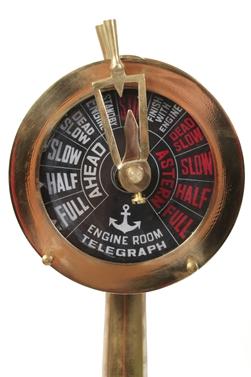
Steamship Mutual
Published: June 01, 2013

Greatship (India) Ltd v Oceanografia SA de CV [2012] EWHC 3468 (Comm).
The English High Court has held that, under the standard wording of clause 10 of the BIMCO SUPPLYTIME ’89 charterparty, an owner does not have to give notice or wait for a grace period before temporarily suspending performance under the Supplytime ’89 charterparty when hire is due but not paid.
The dispute concerned the exact meaning and effect of clause 10e of the 1989 Supplytime form, dealing with payments. The clause states:
"...
[10]
(e) Payments: Payments of Hire, bunker invoices and disbursements for Charterers' account shall be received within the number of days stated in Box 23 from the date of receipt of the invoice. Payment shall be made in the contract currency in full without discount to the account stated in Box 22. However any advances for disbursements made on behalf of and approved by Owners may be deducted from Hire due.
If payment is not received by Owners within 5 banking days following the due date Owners are entitled to charge interest at the rate stated in Box 24 on the amount outstanding from and including the due date until payment is received.
Where an invoice is disputed, Charterers shall in any event pay the undisputed portion of the invoice but shall be entitled to withhold payment of the disputed portion provided that such portion is reasonably disputed and Charterers specify such reason. Interest will be chargeable at the rate stated in Box 24 on such disputed amounts where resolved in favour of Owners. Should Owners prove the validity of the disputed portion of the invoice, balance payment shall be received by Owners within 5 banking days after the dispute is resolved. Should Charterers' claim be valid, a corrected invoice shall be issued by Owners.
In default of payment as herein specified, Owners may require Charterers to make payment of the amount due within 5 banking days of receipt of notification from Owners; failing which Owners shall have the right to withdraw the Vessel without prejudice to any claim Owners may have against Charterers under this Charter party.
While payment remains due Owners shall be entitled to suspend the performance of any and all of their obligations hereunder and shall have no responsibility whatsoever for any consequences thereof, in respect of which Charterers hereby indemnify Owners, and Hire shall continue to accrue and any extra expenses resulting from such suspension shall be for Charterers' account
..."
The dispute initially went to arbitration and, while London maritime arbitration awards are not published, it is clear from the judgement that the arbitrators decided that the right to suspend performance arose only after owners had given notice to charterers and then waited for five banking delays to elapse; in other words that the right to suspend performance was subject to the same procedure as the right to withdraw permanently from the charter.
On appeal, Mrs Justice Gloster allowed owners’ appeal against this arbitration award. She went to some length to consider, and rule out, any potential argument that charterers might have against her finding that owners could suspend performance without notice, and without waiting for any grace period, as long as hire was due and not paid within the time agreed in box 23. Charterers were refused leave to appeal against this decision.
The Court followed the recent Supreme Court decision in the “Rainy Sky” where it was held that “if the contract has used clear and unambiguous language, the court must apply it, however surprising or unreasonable the result might be.” (If a contract wording has two possible meanings, then English law would allow a court to consider both and decide which meaning might make commercial sense and which might be considered unreasonable).
The judge looked very carefully at the words and construction of clause 10e and decided that payment is due if it is not paid by the due date indicated in box 23. The last paragraph of the clause then allows owners to suspend performance when payment is due, or remains due, and she did not accept arguments that this last paragraph was subject to, or had to follow the wording in the previous paragraph dealing with withdrawal, which requires a grace period of five banking days after notice to charterers.
The judge did not see any grounds for charterers to argue that it was implied in the contract that owners were obliged to allow a grace period. Sometimes, English law will imply a term that is not written into the contract, if such a term is necessary to give the contract business sense. Here, she thought that the wording of the standard clause was clear and complete, and it was not necessary to imply any additional term.
The court did not accept charterers’ argument that it was uncommercial to allow owners to suspend performance without notice or a grace period when the ship might be involved in a time-sensitive operation. It made commercial sense for the contract to have two levels of response where the charterer failed to pay hire: owners could suspend performance on a temporary basis without the grace period, but could permanently withdraw from the contract only after clear written notice, and a grace period which gave the charterers an opportunity to pay.
It should be noted that the right to suspend performance only exists where undisputed hire is due and not paid: if any hire is disputed, then the clause entitles charterers to withhold the disputed portion of hire and, provided the charterers pay the undisputed portion of hire, there is no right of suspension. The right of an owner to suspend performance without notice or grace periods might also be negated by amended wording or additional clauses to the standard SUPPLYTIME ‘89 wording.
Article by Bill Kirrane


